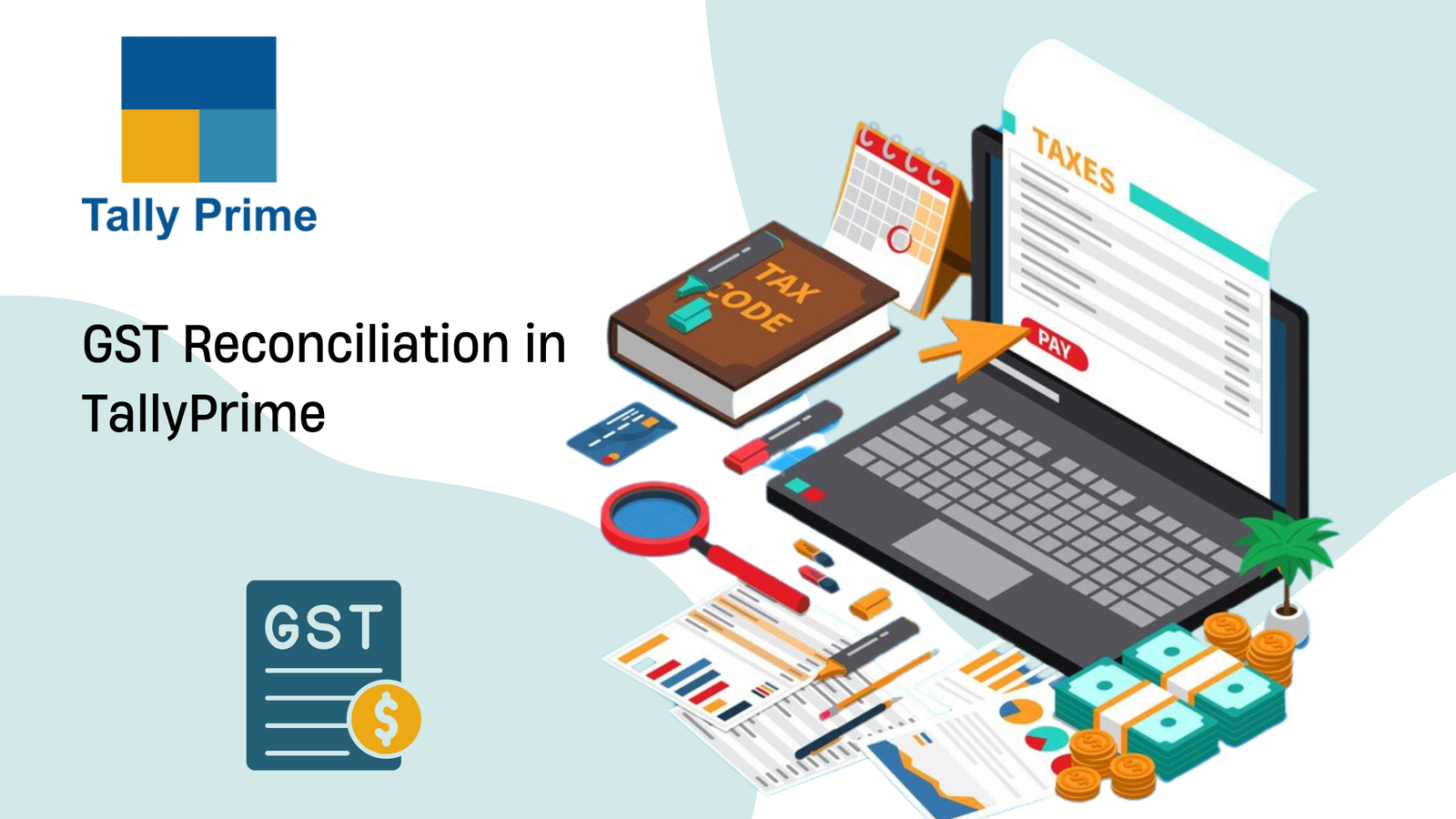I. Introduction
India's unified indirect tax system was established in 2017 and is known as the Goods and Services Tax, or GST. It streamlined state-by-state taxation by replacing several cascading taxes. By charging products and services at every point in the supply chain, the Goods and Services Tax (GST) seeks to unify the market, decrease tax evasion, and accelerate economic growth.
One of the industry's mainstays, TallyPrime is well-known for its comprehensive features designed with GST compliance and its easy-to-use interface. Its smooth connection with GST legislation, which is trusted by companies of all sizes, makes tax management simpler and makes it a top option for precise and effective financial operations.
Businesses must use TallyPrime's GST reconciliation feature to guarantee accurate tax reporting. It reduces mistakes and inconsistencies by enabling firms to reconcile their purchase and sales data with GST returns. TallyPrime helps organizations stay in compliance and stay out of trouble by giving them a clear overview of all financial activities.
II. Understanding GST Reconciliation
In order to verify correctness and consistency, GST reconciliation entails comparing the information provided in GST returns with the books of accounts. It finds any differences between purchases and sales, fixes mistakes, and guarantees that tax laws are followed. For firms to keep correct tax records and meet their tax obligations, this procedure is essential.
Businesses utilizing TallyPrime must do GST reconciliation in order to guarantee appropriate tax reporting. It assists in maintaining compliance with GST requirements, resolving input and output tax problems, and identifying disparities between sales and purchase data. Businesses run the danger of filing taxes incorrectly, which could result in fines and legal issues.
Data from a company's financial records and the matching entries in the GST portal are matched as part of the TallyPrime reconciliation procedure. This is streamlined by TallyPrime, which automatically retrieves GST data and makes it easier to compare it with the business's records. This guarantees that discrepancies are found and dealt with quickly to ensure proper tax reporting.
III. Ensuring Accuracy in Tax Reporting
For businesses to comply with GST requirements, ensure compliance, and stay out of trouble, accurate tax reporting is essential. It promotes a good reputation, increases confidence with authorities, and makes financial activities more transparent. Precise reporting is essential since errors might result in financial losses and legal repercussions.
By methodically comparing data across GST returns and accounting records, TallyPrime's GST reconciliation ensures accuracy in tax reporting. Its automated capabilities help to quickly rectify inconsistencies by identifying them, such as mismatched invoices or input tax credits. This reduces the possibility of fines for businesses and guarantees adherence to GST requirements.
IV. Benefits of GST Reconciliation in TallyPrime
Efficiency: How TallyPrime helps organizations save time and effort by streamlining the reconciliation process.
Accuracy: How TallyPrime's features help identify and rectify discrepancies, ensuring precise tax reporting.
Compliance: How GST reconciliation in TallyPrime helps businesses stay compliant with GST regulations, avoiding penalties and legal issues.
V. Challenges and Solutions
Input tax credit issues, complex multi-state transactions, and mismatched invoices are common challenges encountered throughout the GST reconciliation process using TallyPrime. Inaccurate or insufficient data entry can also cause issues and result in differences in tax computations. It takes close attention to detail and a solid grasp of GST legislation to overcome these obstacles.
The comprehensive support resources provided by TallyPrime enable firms to effectively address reconciliation issues. Users can get expert advice and troubleshooting tips through knowledge bases, online forums, and dedicated helplines. Furthermore, TallyPrime's training courses provide customers the abilities they need to easily handle complexity and accomplish smooth GST reconciliation.
VI. Conclusion
For accurate tax filing, TallyPrime's GST reconciliation is essential. By ensuring that the financial data matches the GST returns, it lowers the possibility of mistakes and fines. Businesses can preserve GST compliance, enhance financial correctness, and reduce audit risk by reconciling transactions, which builds credibility and trust.
Reconciliation has to be given top priority by businesses as the cornerstone of their GST compliance plan. It guarantees tax reporting accuracy, minimizes mistakes, and lowers the possibility of fines. Businesses can preserve regulatory compliance, preserve financial integrity, and build confidence with stakeholders and tax authorities by incorporating reconciliation into their process.



